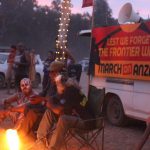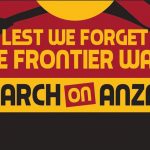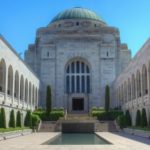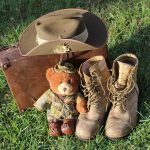Lest We Forget the Futility of Gallipoli
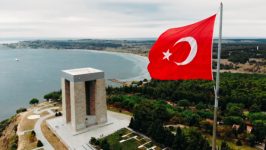
Today, Australia collectively pauses to remember those who died in battle on foreign shores.
It’s a day when the legend of the Anzac is celebrated and, as journalist Scott McIntyre and presenter Yassmin Abdel-Magied recently found, a day that can’t be questioned.
The Anzac legend was birthed out of Australian and New Zealand troops’ involvement in the battle of Gallipoli, which was one of the First World War’s bloodiest conflicts.
The Turkish refer to this British Empire-led attack on their soil as the battle of Çanakkale.
According to NZ History statistics, 44,150 Allied troops lost their lives over the course of the conflict, while 86,692 Ottoman Empire troops perished during their defence of land. Australian troops accounted for 8,709 of the dead, whilst those fallen from New Zealand numbered 2,779.
As the nation gathers to mark Anzac Day, it’s a prime time to remember that the Gallipoli battle was a futile action that involved the deaths and injury of, for-the-most-part, soldiers from lower socioeconomic backgrounds, carrying out the orders of imperialist forces.
“Nothing but bloody murder”
The Allied troops invaded the shores of Gallipoli – locally known Gelibolu – on 25 April 1915. The attack was an attempt to open up the Dardanelle Straits and Black Sea for the Allied powers, which comprised Britain, France and Russia.
The British had initially attempted a naval attack in February that year. But, after its failure, troops were deployed to storm the coastline. British general Ian Hamilton was the commander-in-chief. His actions – along with those of other generals beneath him – have been criticised ever since.
Newly-independent Australia was still classed as part of the British Empire. Aussie troops fought alongside personnel from Britain, New Zealand, France, colonised India, as well as those from the British colony of Newfoundland, which is now a part of Canada.
For Australians, the most brutal day of the battle came on 7 August, when four waves of 150 troops were ordered to jump the trenches and charge the Turkish position just 27 metres away. And this led to 300 mainly Victorians and Western Australians being slain in just 15 minutes.
Adelaide University Professor Robin Prior told the ABC that the whole campaign was utterly futile, as even if the objective to subsequently conquer what was then Constantinople had been achieved, the hope of a Balkan coalition to help knock out the Central Powers would never have been forthcoming.
The cost at home
As Smithsonian magazine writer Joshua Hammer outlined in 2015, the Turkish soldiers “fought with a tenacity” that the invading British “had never anticipated”. Troops from both sides had to deal the harsh realities of the battlefield, such as “bad food” and having to go barefoot.
Unlike those in charge of the Allies, the commander of the Turkish troops, German general Otto Liman von Sanders, and the Turkish division commander, Mustafa Kemal, were superior strategists. Despite this, their campaigning resulted in 251,309 local troops being killed or injured.
Australian archaeologist Dr Michelle Negus Cleary pointed out on the 100th anniversary of the battle, that all the soldiers, no matter which side, suffered the “most gruelling conditions”, including disease, the “daily death of comrades”, fatigue and filth.
Many troops would go on to suffer the trauma of mental, physical and emotional injuries that would be with them for the rest of their lives.
The Frontier Wars
Around 50 First Nations people are estimated to have fought at Gallipoli at a time when they weren’t recognised as part of the Australian nation. Thirteen of these men were said to have been killed. However, no exact number is known, as their ancestry was not recorded.
The For Our Country sculpture was recently unveiled at the Australian War Memorial (AWM), which commemorates the Aboriginal and Torres Strait Islander servicepeople, who lost their lives fighting on behalf of the Australian military overseas.
In his dedication at the unveiling, AWM director Dr Brendan Nelson acknowledged the “process of dispossession, violence and brutality” that constituted the Frontier Wars that were waged across this continent.
And social activist Graeme Dunstan told Sydney Criminal Lawyers that in his speech, Nelson implied that fighting for Australia won Indigenous peoples “equality and inclusion”, which he declares is “bullshit”, and a way of further ensuring the AWM continues to avoid acknowledging the conflict in this country.
Forgotten memories
A 2008 Sydney Morning Herald editorial put forth that as the 90th anniversary of the end of the Great War was upon Australia, the “nature of remembrance” was changing, as the last of those who “saw active service in that conflict” were no longer with us.
And for those that were left behind, with no personal memories of the war, “remembrance is a different thing entirely”, as it’s “a distant horror, existing in the imagination”. And with this, Anzac Day had recently transformed “into a kind of flag-draped” festival.
The danger in this transformation, the editorial asserted, was that “nationalism” was replacing remembrance, and “the solemnity and the serious purpose of Anzac Day” was being “lost in an irrelevant search for some kind of essence of Australianness”.
No difference between us
Indeed, the fighting in Gallipoli is often spruiked as the impetus that forged the independent Australian, New Zealand and Turkish nations. But, just like China’s claim that it brought modernity to Tibet by invading that country, these developments would have always come about.
And just as the founder of modern Turkey, Mustafa Kemal Ataturk stated that the legacy of Gallipoli should serve to bring former enemies together, so too should its remembrance seek to unite those currently living in Australia.
Perhaps Scottish Australian musician Eric Bogle put it best in his anti-war classic – And the Band Played Waltzing Matilda – when the maimed Gallipoli veteran remarked, “The young people ask me, ‘What are they Marching for?’ And I ask myself the same question.”




